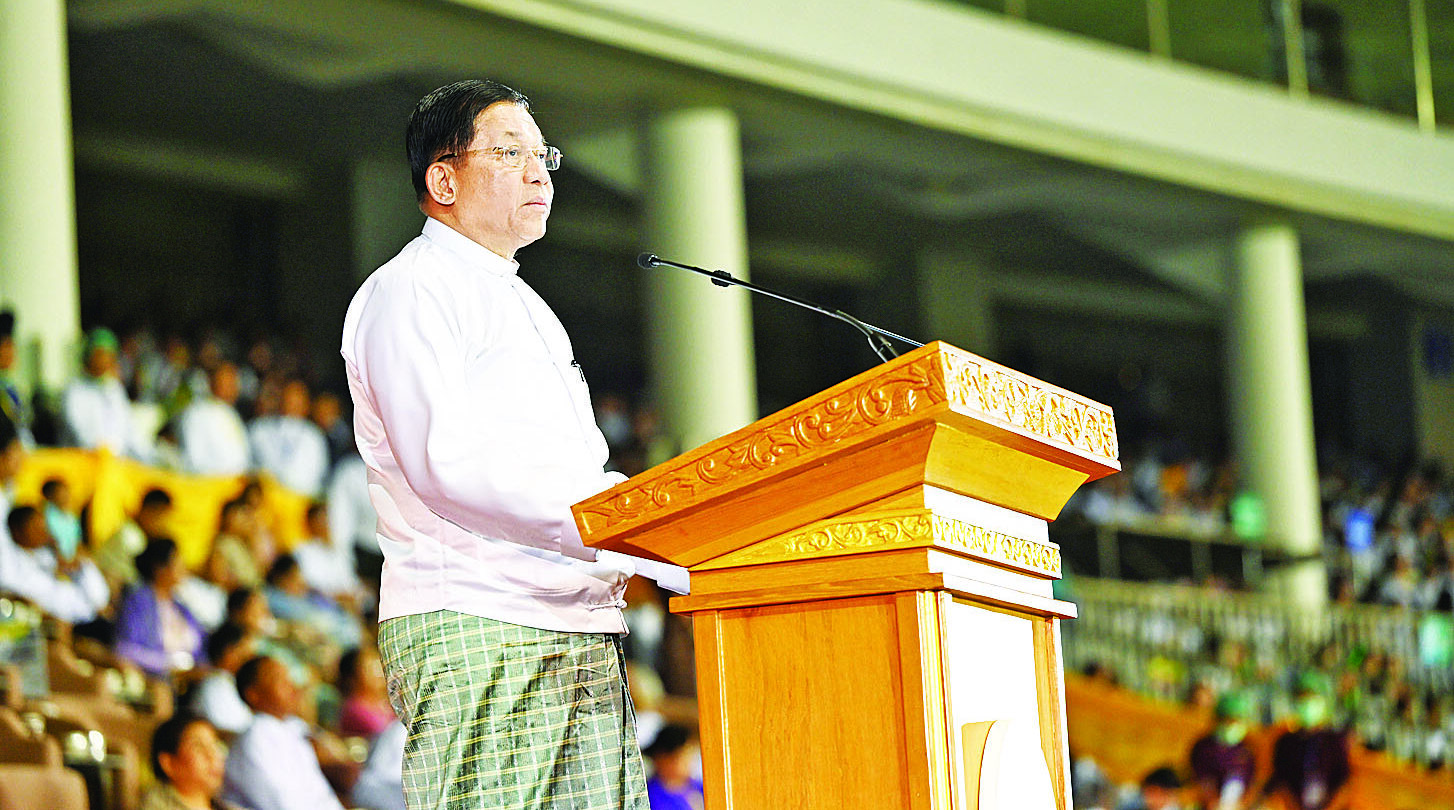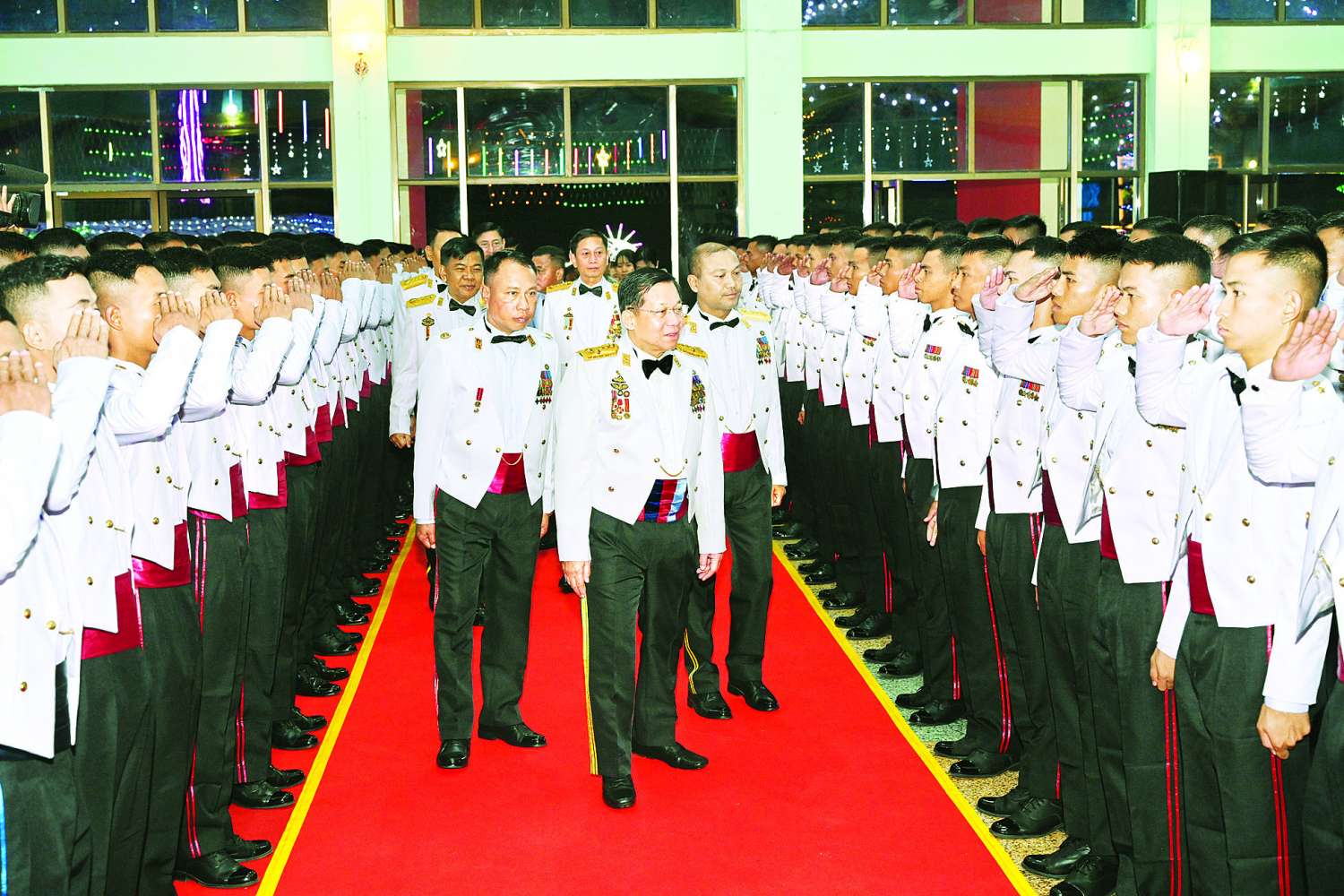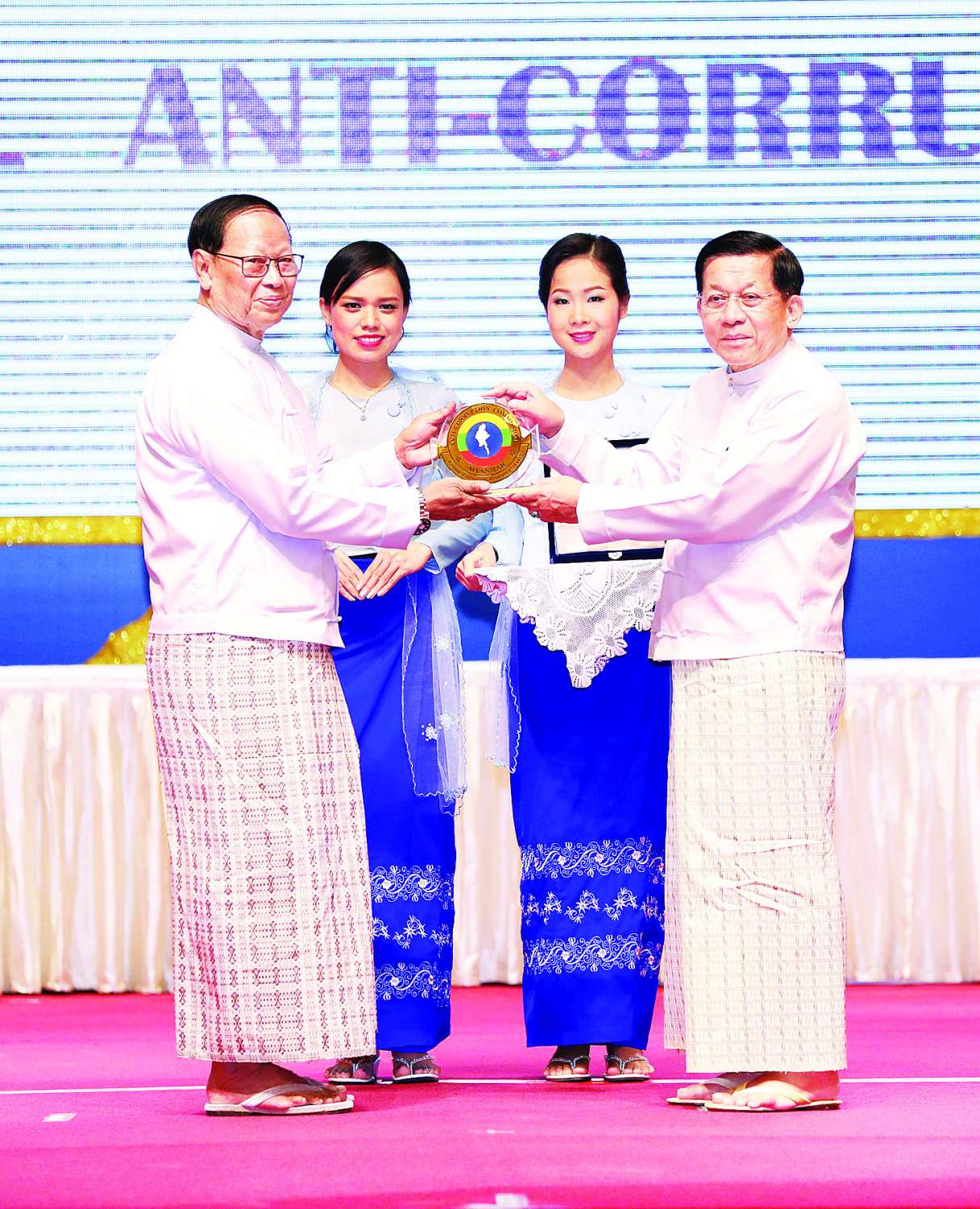
“The National Sports Festival reflects the country’s peace and stability,” regime boss Min Aung Hlaing told athletes and an audience comprised mainly of junta employees, as he opened the event’s fifth annual edition on Monday amid civil war engulfing the country.
Fierce clashes were ongoing in Rakhine, Kachin, Chin, and Karen states as he cut the ribbon for the sports festival in the junta’s nerve center of Naypyitaw.
In Rakhine State, the Arakan Army (AA) seized the border town of Maungdaw on Sunday while intensifying its onslaught on the junta’s Western Command in Ann. The ethnic armed group now controls the country’s entire border with Bangladesh.
Desperate to mask the scale of his failures, Min Aung Hlaing has seized on annual events such as the sports festival to present an illusion of normalcy to the world and Myanmar people.
But he appears to have forgotten that we live in the internet age.
Military supporters were the first to respond on social media, criticizing the junta boss for holding celebrations in the safety of his fortress rather than strategizing ways to rescue his Western Command.
Min Aung Hlaing attracted similar ire when he held traditional performing arts competitions in Naypyitaw after the Myanmar National Democratic Alliance Army (MNDAA)’s August seizure of the northern Shan State capital, Lashio, and its Northeastern Command headquarters.
Prepping cannon fodder for Western front

Inferior manpower and weaponry could not stop determined soldiers from achieving their mission, Min Aung Hlaing said in a speech meant to motivate new recruits of the Defense Services Academy last Saturday.
The junta chief was speaking against the backdrop of fighting in Maungdaw on the Bangladesh frontier in western Myanmar’s Rakhine State, where the Border Guard Police Battalion No. 5 had defied the Arakan Army’s (AA) siege for over three months.
Unfortunately, the police battalion fell the next day, with Brigadier-General Thurein Tun, chief of the 15th Military Operations Command, among numerous junta soldiers captured by the AA. The regime has remained silent on the defeat, which ceded the entire border with Bangladesh to the ethnic army.
Junior officers routinely highlight the importance of mental strength and endurance to deceive young officers deployed to hopeless frontline positions.
Severely depleted by almost four years of fighting a civil war on multiple fronts, the military is now unable to deploy reinforcements in many battles. The anti-regime Operation 1027 in northern Shan State and fighting in Karenni (Kayah) State saw many junta bases simply surrender after the regime failed to send reinforcements.
With the junta now desperately short of troops to defend its few remaining positions in Rakhine State, including Western Command HQ in Ann town, military graduates must be praying for divine intervention.
Lessons in corruption from the best

Ask Myanmar’s people who they would like to see prosecuted for corruption and there would be one overwhelming answer: Min Aung Hlaing and his family. However, in a speech to mark International Anti-Corruption Day on Tuesday, the junta boss claimed his regime was actively combating graft in the national interest.
“Corruption undermines democracy,” he declared, apparently forgetting the coup he led to oust a democratically elected government and replace it with military rule less than four years ago.
Regime change has been kind to the coup leader. Despite being a mere salaried civil servant, Min Aung Hlaing owns luxury mansions in upscale neighborhoods in Naypyitaw, Yangon and Pyin Oo Lwin. He and his two children have their fingers in every pie, from pharmaceuticals, hospitals, construction, and hotels to transportation, film production, entertainment, insurance, telecommunications, art galleries, fine-dining restaurants, and sports facilities.
Where did they get the money to make those investments?
As junta chief, Min Aung Hlaing has unlimited access to the country’s natural resources, business cronies, and soldiers to exploit.
His energetic efforts to fill the family’s coffers are accompanied by frequent exhortations for frugality, urging the public and government employees to tighten their belts.
Meanwhile, all soldiers are forced to buy shares in military-owned conglomerates, with money deducted from their monthly salaries. However, they never receive dividends, as Min Aung Hlaing and other generals line their pockets with the profits.
Proving the adage that an apple never falls far from the tree, the junta chief’s son, Aung Pyae Sone, benefits from military-related projects due to his father’s influence. It is compulsory for all soldiers to have life insurance with Aung Myint Moh Min Insurance Company, owned by Aung Pyae Sone, with premiums deducted directly from their salaries. However, Aung Myint Moh Min Co refuses to pay out life insurance on soldiers whose bodies are not recovered, conveniently labeling them as “missing.”
While Min Aung Hlaing did decide to prosecute and imprison his trusted aide Moe Myint Tun for corruption, this was merely a case of saving face. The move was more about public perception than ensuring genuine accountability. Moe Myint Tun was made to take the fall when the skeletons began tumbling out of the closet.
SOURCE : irrawaddy
